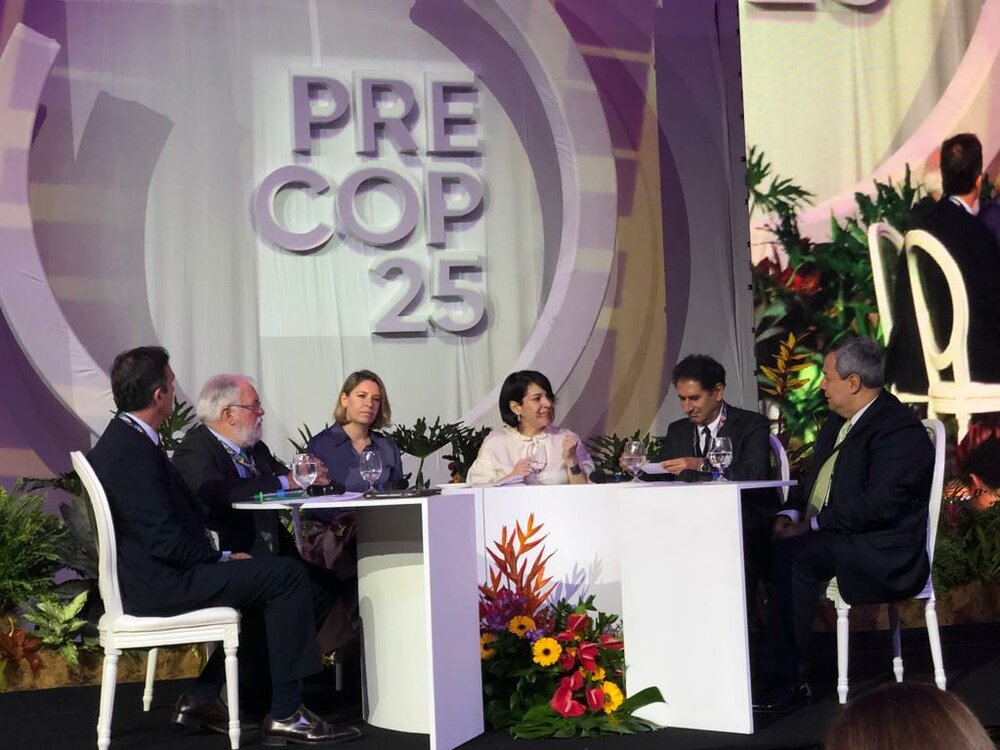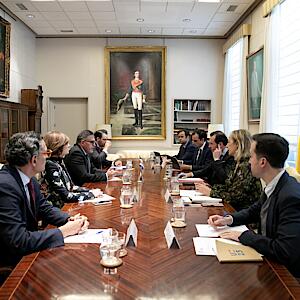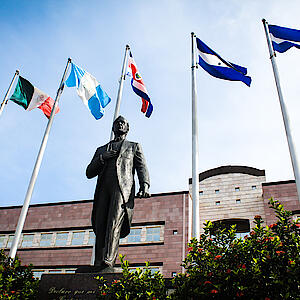CABEI is the fundamental promoter of green financing for the region

CABEI is the most active multilateral development institution in the region, offering financial solutions that contribute to the planet's conservation.
San José, October 8, 2019.- The Executive President of the Central American Bank for Economic Integration (CABEI) Dr. Dante Mossi participated in the preparatory event for the 25th Conference of the Parties (COP) of the United Nations Framework Convention on Climate Change (UNFCCC). The event, which will be held at this city's National Convention Center, is considered the most important event in the field of climate change and sustainability held in Central America over recent times.
During his speech at the high-level panel denominated, “Energy transition and sustainable mobility” President Mossi stressed that, "As the main channeler of green funds for the region, the promotion of financial solutions for the current needs of climate change mitigation and adaptation is a priority for CABEI.”
Experience in the region
Dr. Mossi added that throughout the 2015-2018 period, the Bank approved US$2.8 billion in financing for climate change initiatives, which represents 35% of CABEI's total loan approvals for the period. In addition, he mentioned the channeling of US$847.0 million of external financing from other development partners.
In order to increase CABEI's investment in climate change operations, the Bank has also been formally accredited to channel financial resources to address climate change challenges in the region by global funds, such as the Green Climate Fund and the Adaptation Fund.
CABEI has the capacity, knowledge and experience to provide its member countries with advice on sustainable financial solutions in both bonds and loans aimed at environmental conservation in order to support the region in achieving the Sustainable Development Goals (SDGs) and the objectives set out in the Paris Climate Change Agreement.
Likewise, in 2019 CABEI issued a declaration of zero carbon emissions through which it expressed its commitment to refrain from financing projects related to the exploration, extraction and generation of coal energy and to identify initiatives that promote climate change mitigation and prevention. The CABEI zero carbon emissions statement also considers the strengthening of low carbon economies, societies resistant to climate change, sustainable food production, clean energy generation and energy efficiency.
In addition, the Bank has a portfolio of projects to channel resources from the Green Climate Fund amounting to more than US$1.00 billion, including a number of initiatives of great national and regional impact in the fight against climate change, such as the fast passenger train of the great metropolitan area of San José in Costa Rica, which will contribute a reduction of more than 11.0 million tons of CO2 emissions and the development of a climate change-resilient transportation system, impacting 2.6 million people.
Another noteworthy example is the Central American Dry Corridor Program, which will increase the resilience to climate change of approximately 1.75 million people. Furthermore, CABEI has just completed the development of its Green Bond Framework in line with the principles of the Green Bond Initiative.








